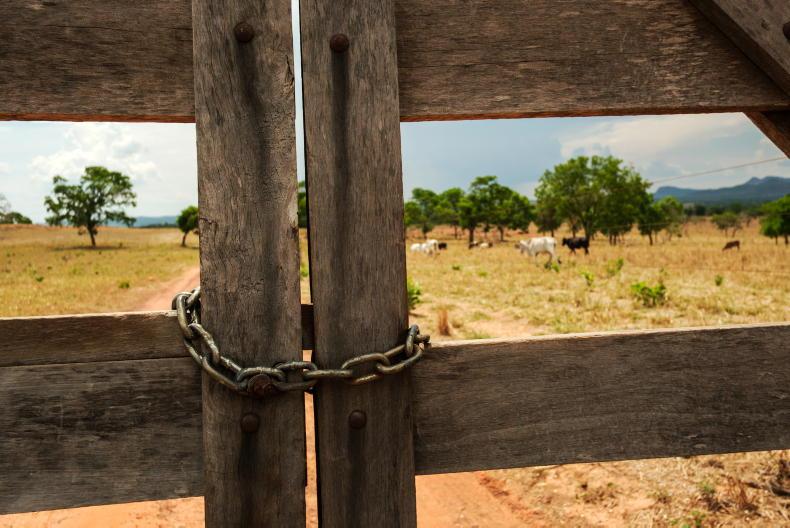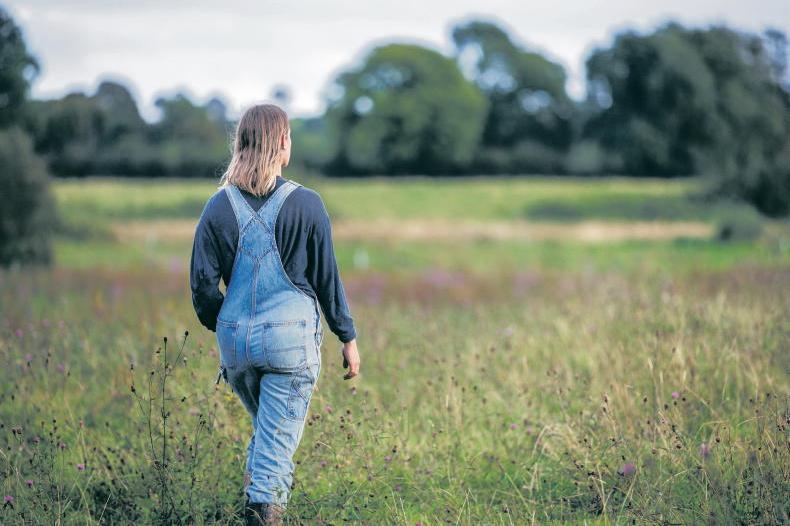“I own a farm and my wife has recently had a severe diagnosis and may need nursing home care. I have a nephew currently working in Dublin who may take over the farm in the future. He currently comes down an odd weekend to help on the farm. Do I have to transfer the farm to him to qualify for the three-year cap on farm assets for the Fair Deal?”
The Nursing Homes Support Scheme (Amendment) Act 2021 was signed into law on 22 July 2021. It is stated that the new law will come into operation 90 days after the passing of the Act, which one must assume is 20 October 2021.
Under the new law, the person needing nursing home care or their spouse may appoint a person as family successor to ensure the farm is only taken into account for three years for the Fair Deal Scheme.
However, there is no requirement for them to actually inherit the farm.
Three-year cap under the old rules
Claimants contribute up to 80% of their assessable income and 7.5% of the value of their assets towards the cost of their nursing home care. In the case of a couple, applicants’ means are assessed as 50% of a couple’s combined income and assets. The first €72,000 worth of assets are disregarded in the case of a couple. Assets include any assets transferred in the five years before the first application for the Fair Deal Scheme.
The applicant or their spouse’s principal private residence will only be included in the financial assessment for the first three years of assessment. This is known as the three-year cap.
Under the old rules, there is no three-year cap on farms or business assets except in the case where the farmer or business owner becomes ill or disabled suddenly and there is a family successor identified. The successor must be a relative of the farmer and regularly and consistently applies a portion of his or her working day on the farm.
Three-year cap under the new rules
Under the new rules due to come into effect from 20 October 2021, the three-year cap will apply to farm or business assets where a family successor commits to working on the farm for six years from the date of the appointment.
Further, that same person must have consistently applied a substantial part of their working day to the farm for three years out of the previous five years prior to the application being made. The three years does not have to be consecutive or on a full-time basis. Further, the family successor does not have to be a relative. The successor will have to commit to operate the farm for the following six years – it cannot be leased or farmed by someone else other than a situation where the family successor dies or there is a change in his or her circumstance, in which case an application for a replacement successor can be made.
The HSE will have a broad remit to conduct interviews, request and receive and consider records and information and conduct reviews in respect of the provision of financial support. The legislation also envisages a situation where the farm could be transferred to someone other than the family successor. If this is within the six-year period from when the family successor was appointed, an application will have to be made for the person who takes over ownership of the farm to replace the original family successor.
The new legislation also envisages that a care representative may have a role in the appointment of a family successor, including selecting an appropriate person to act as family successor. This could lead to conflicts of interest, particularly where the family successor is also an attorney under an enduring power of attorney or committee of a ward of court.
No requirement to transfer farm
There is no obligation under the legislation to transfer the land to the person nominated as a family successor. This, to my mind, could give rise to legal challenges. Ultimately, it means that a person who has to comply with obligations to ensure that the farm is only taken into account for the Fair Deal for three years could be overlooked in a will and the farm left to someone else. It would be important that both the applicant and the family successor would get legal advice before the appointment to ensure that protections can be put in place to try and avoid a subsequent legal challenge under a will on the basis of promissory or proprietary estoppel. This is where a person claims that they should have inherited a farm on the basis that they had been given a promise or expectation that the farm would be theirs one day.
If they were appointed as family successor such a presumption could arise. Operational guidelines for compliance for successors is due to issue in the next couple of weeks which hopefully should shed more light on these issues.
Disclaimer: The information in this article is intended as a general guide only. While every care is taken to ensure accuracy of information contained in this article, Aisling Meehan, Agricultural Solicitors does not accept responsibility for errors or omissions howsoever arising. Email aisling@agrisolicitors.ie
Read more
Bitter taste to Fair Deal breakthrough
Money Mentor: Fair Deal Scheme becomes a little fairer for farming families
“I own a farm and my wife has recently had a severe diagnosis and may need nursing home care. I have a nephew currently working in Dublin who may take over the farm in the future. He currently comes down an odd weekend to help on the farm. Do I have to transfer the farm to him to qualify for the three-year cap on farm assets for the Fair Deal?”
The Nursing Homes Support Scheme (Amendment) Act 2021 was signed into law on 22 July 2021. It is stated that the new law will come into operation 90 days after the passing of the Act, which one must assume is 20 October 2021.
Under the new law, the person needing nursing home care or their spouse may appoint a person as family successor to ensure the farm is only taken into account for three years for the Fair Deal Scheme.
However, there is no requirement for them to actually inherit the farm.
Three-year cap under the old rules
Claimants contribute up to 80% of their assessable income and 7.5% of the value of their assets towards the cost of their nursing home care. In the case of a couple, applicants’ means are assessed as 50% of a couple’s combined income and assets. The first €72,000 worth of assets are disregarded in the case of a couple. Assets include any assets transferred in the five years before the first application for the Fair Deal Scheme.
The applicant or their spouse’s principal private residence will only be included in the financial assessment for the first three years of assessment. This is known as the three-year cap.
Under the old rules, there is no three-year cap on farms or business assets except in the case where the farmer or business owner becomes ill or disabled suddenly and there is a family successor identified. The successor must be a relative of the farmer and regularly and consistently applies a portion of his or her working day on the farm.
Three-year cap under the new rules
Under the new rules due to come into effect from 20 October 2021, the three-year cap will apply to farm or business assets where a family successor commits to working on the farm for six years from the date of the appointment.
Further, that same person must have consistently applied a substantial part of their working day to the farm for three years out of the previous five years prior to the application being made. The three years does not have to be consecutive or on a full-time basis. Further, the family successor does not have to be a relative. The successor will have to commit to operate the farm for the following six years – it cannot be leased or farmed by someone else other than a situation where the family successor dies or there is a change in his or her circumstance, in which case an application for a replacement successor can be made.
The HSE will have a broad remit to conduct interviews, request and receive and consider records and information and conduct reviews in respect of the provision of financial support. The legislation also envisages a situation where the farm could be transferred to someone other than the family successor. If this is within the six-year period from when the family successor was appointed, an application will have to be made for the person who takes over ownership of the farm to replace the original family successor.
The new legislation also envisages that a care representative may have a role in the appointment of a family successor, including selecting an appropriate person to act as family successor. This could lead to conflicts of interest, particularly where the family successor is also an attorney under an enduring power of attorney or committee of a ward of court.
No requirement to transfer farm
There is no obligation under the legislation to transfer the land to the person nominated as a family successor. This, to my mind, could give rise to legal challenges. Ultimately, it means that a person who has to comply with obligations to ensure that the farm is only taken into account for the Fair Deal for three years could be overlooked in a will and the farm left to someone else. It would be important that both the applicant and the family successor would get legal advice before the appointment to ensure that protections can be put in place to try and avoid a subsequent legal challenge under a will on the basis of promissory or proprietary estoppel. This is where a person claims that they should have inherited a farm on the basis that they had been given a promise or expectation that the farm would be theirs one day.
If they were appointed as family successor such a presumption could arise. Operational guidelines for compliance for successors is due to issue in the next couple of weeks which hopefully should shed more light on these issues.
Disclaimer: The information in this article is intended as a general guide only. While every care is taken to ensure accuracy of information contained in this article, Aisling Meehan, Agricultural Solicitors does not accept responsibility for errors or omissions howsoever arising. Email aisling@agrisolicitors.ie
Read more
Bitter taste to Fair Deal breakthrough
Money Mentor: Fair Deal Scheme becomes a little fairer for farming families










SHARING OPTIONS